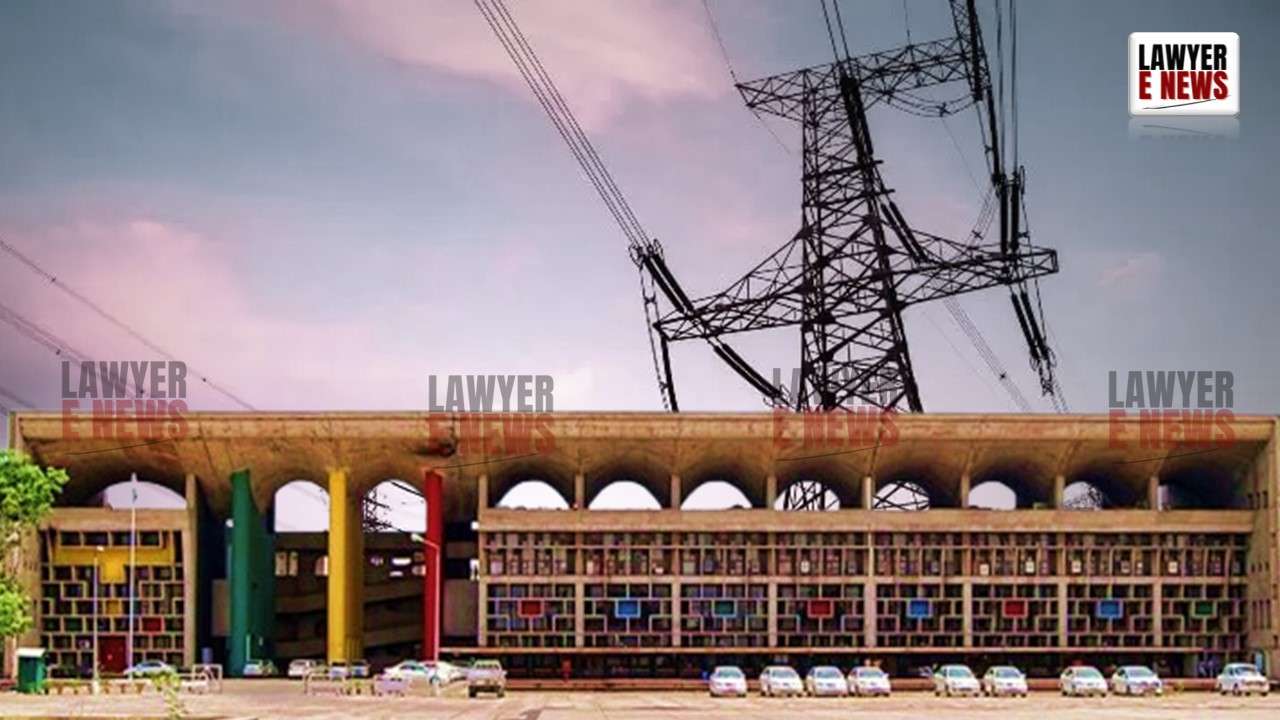-
by Admin
15 February 2026 2:36 AM



On November 6, 2024, the Punjab and Haryana High Court dismissed a set of petitions filed by the U.T. Powermen Union, challenging the privatization process of the Chandigarh Electricity Department. The Court ruled that the process of issuing bids for the privatization of the Union Territory’s electricity distribution was in compliance with the Electricity Act, 2003, and found no statutory requirement mandating the finalization of a transfer scheme before initiating the bidding process. The Court also emphasized the limited scope of judicial review over policy decisions in economic matters.
The U.T. Powermen Union, representing employees of the U.T. Chandigarh Electricity Department, filed petitions against the privatization of the department, alleging procedural irregularities, non-compliance with statutory requirements, and potential harm to employee rights. The petitioners argued that under Section 131 of the Electricity Act, 2003, a finalized transfer scheme was required before issuing bids for privatization. They further claimed that no company was incorporated to take over the department’s functions prior to the bidding, and contended that 100% privatization of a profit-making department was unwarranted and against public interest.
In response, the Union of India and U.T. Chandigarh Administration argued that the privatization process was legally sound, highlighting the government's policy decision to involve private sector participation in the power sector. They asserted that Section 131 did not mandate a finalized transfer scheme before the bidding stage, and that employee rights would remain protected under the statutory framework.
The primary contention was whether Section 131 of the Electricity Act, 2003, required a finalized transfer scheme before issuing bids for privatization. The petitioners argued that privatization could not proceed without such a scheme in place. However, the Court found this argument unsubstantiated.
"Section 131 does not envisage the existence of a transfer scheme before inviting bids," the Court stated. "In fact, the transfer scheme is required only after identifying the transferee, allowing for re-vesting of property, rights, and liabilities."
The Court clarified that a literal reading of Section 131 indicated that the transfer scheme's purpose was to facilitate the transfer of property and assets once a transferee had been identified. Thus, the Court held that the statutory framework did not prevent the government from issuing bids before finalizing the transfer scheme.
The petitioners expressed concerns that privatization would adversely affect their employment terms. In response, the Court emphasized the protections afforded to employees under Section 133 of the Electricity Act, which ensures that employee service conditions cannot be made "less favorable" post-transfer.
"The proviso to Section 133 guarantees that employees' terms and conditions will remain as favorable as before the transfer," the Court noted, addressing employee concerns about potential changes to their employment status.
This provision, the Court explained, was sufficient to safeguard employees’ rights, ensuring that privatization would not undermine their existing benefits or conditions.
The petitioners argued that the privatization decision was unnecessary and against public interest, especially given that the U.T. Electricity Department was profitable. They sought judicial intervention to halt the privatization on policy grounds.
The Court, however, reiterated the limited scope of judicial review over economic policy decisions. Citing the Supreme Court’s ruling in Balco Employees Union (Registered) v. Union of India (2002), the Court observed:
"It is neither within the domain of the Courts nor the scope of judicial review to question the wisdom of a particular public policy. Judicial interference is warranted only where a policy decision is shown to be arbitrary, capricious, or violative of statutory or constitutional provisions."
The Court stressed that policy decisions, especially in areas requiring technical expertise, such as economic reforms, are best left to the executive. Judicial review, it explained, cannot extend to determining whether a different or "better" policy could have been adopted.
No Requirement for Finalized Transfer Scheme Pre-Bidding: The Court ruled that Section 131 of the Electricity Act does not mandate a finalized transfer scheme before the issuance of bids for privatization. A transfer scheme is to be completed only after identifying the transferee.
Employee Protections Assured: The Court confirmed that Section 133 protects employees' rights, ensuring that service conditions will not be less favorable post-transfer. Thus, the privatization process does not infringe upon the statutory rights of the employees.
Policy Decision Beyond Judicial Review: Reaffirming the limited scope of judicial intervention in economic policy matters, the Court upheld the government’s decision to privatize the electricity distribution department in Chandigarh. The Court emphasized that such decisions involve complex economic factors and fall within the executive’s discretion.
In dismissing the petitions, the Punjab and Haryana High Court upheld the government's privatization process for the U.T. Chandigarh Electricity Department, affirming that the statutory framework was followed and employee rights remained protected. The judgment reinforces the judiciary's deference to executive decisions in economic and policy matters, particularly where statutory compliance is demonstrated and no constitutional or legal violations are evident.
Date of Decision: November 6, 2024
